Study
| EST. READ TIME 2 MIN.Fraser Forum - March 2004: Families and the State
Share
In this issue:
BC’s Dependency-inducing U-Turn on Welfare Reform
by Jason Clemens, Niels Veldhuis, and Sylvia LeRoy
The BC government recently de-legitimized one of Canada’s most important social welfare reforms to date. It’s the poor who’ll pay.
Private Sector Can Meet Child Care Demands
by Peter Shawn Taylor
If the supply of regulated day care spaces is indeed a concern, advocates should be promoting a greater role for the private sector.
The Increasing Cost of University: Is it Fair for Lower-income Families?
by Claudia R. Hepburn
The financial benefits from a university degree are so great that despite high and increasing tuition rates, the investment is still sound.
Does Canada have a Marriage Tax Penalty?
by Niels Veldhuis and Jason Clemens
A marriage tax penalty exists if a married couple pays higher income tax than they would have had they remained an unmarried couple.
The Greying of Home and Community Care in Ontario: An Agenda for Reform
by Mark Mullins
A number of reforms could simultaneously tame costs, enhance service, and offer more choice to seniors in Ontario.
The Choices Families Make: Home Schooling in Canada Comes of Age
by Deani Van Pelt
Today, home schooling is not the choice of just a few pioneering families, but a movement espousing innovative educational models.
Welfare & Poverty: Family Matters
by Sylvia LeRoy
The income gap between single- and dual-parent families remains large, which has negative social and economic effects on children.
The Great Salmon Panic of 2004
by Kenneth P. Green
Lost in all the hoopla about PCBs in farmed salmon is the nutritional cost we pay for not eating salmon.
Economic Freedom and Prosperity: Study Confirms What We Already Know
by Amela Karabegovic and Fred McMahon
The second edition of Economic Freedom of North America reaffirms the positive impact economic freedom has on economic prosperity.
World Social Forum No Help to the Poor
by Jayant Bhandari
January’s World Social Forum was positive for those organizing the event, but the real Third World poor got nothing out of it.
Poverty and Rents
by Chris Sarlo
Do the poor pay inordinately high rents?
The Tax You Really Pay
by Niels Veldhuis, Jason Clemens, and Michael Walker
With the release of Tax Facts 13, Canadians can calculate how much tax they really pay.
The Feudal Lords of Special Interests
by Filip Palda
Special interest groups have connived with government to tax us and pocket the money. Street criminals would drool with envy.
Share
-

Niels Veldhuis
President, Fraser Institute -
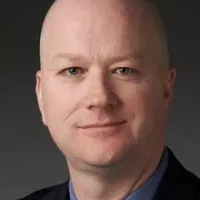
Jason Clemens
Executive Vice President, Fraser Institute -
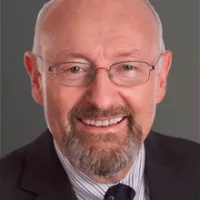
Michael Walker
Fraser Institute Founder and Honorary DirectorMichael Walker was the executive director of the Fraser Institute from its inception in 1974 until September 2005. Before thathe taught at the University of Western Ontario and Carleton and was employed at the Bank of Canada and the Federal Department of Finance. He received his Ph.D. at the University of Western Ontario and his B.A. at St. Francis Xavier University. In 2016, he was appointed to the Order of Canada in recognition of his outstanding achievement, dedication to the community and service to the country.As an economist, he has authored or edited 45 books on economic topics. His articles on technical economic subjects have appeared in professional journals in Canada, the United States and Europe, including the Canadian Journal of Economics, the American Economic Review, the Journal of Finance, the Canadian Tax Journal, Health Management Quarterly, Weltwertschaftliches Archiv and Health Affairs. His primary concern as the founding Executive Director of the Fraser Institute has been to promote the examination and use of competitive markets as a method for enhancing the lives of Canadians.He is the co-founder, with Milton and Rose D. Friedman, of the Economic Freedom of the World project which is now a collaboration of institutes in 85 countries and produces the annual Economic Freedom of the World Index. The Index is one of the most widely cited such measures in the current academic literature.He is a director of a number of firms and other enterprises, including, Canaccord Capital, Mancal Corporation, The Milton and Rose D. Friedman Foundation, and the owner of the Prado Verde Estates and Falcon MHP. He is a director of The Pacific Academy for Advanced Studies which organizes the annual Alamos Alliance meetings of the Chicago Boys who have been instrumental in the economic reform process in Latin America and elsewhere.He has received the Vancouver Rotary Club Service above Self Award, the Colin M. Brown Freedom Medal and Award by the National Citizens' Coalition, an honorary Doctor of Laws degree (LL.D.) from The University of Western Ontario and The Thomas Jefferson Award from the Association of Private Enterprise Education.… Read more Read Less… -
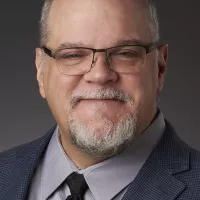
Kenneth P. Green
Senior Fellow, Fraser InstituteKenneth P. Green is a Fraser Institute senior fellow and author of over 800 essays and articles on public policy,published by think tanks, major newspapers, and technical and trade journals in North America. Mr. Green holds a doctoral degree in environmental science and engineering from UCLA, a master’s degree in molecular genetics from San Diego State University, and a bachelors degree in general biology from UCLA.Mr. Green’s policy analysis has centered on evaluating the pros and cons of government management of environmental, health, and safety risk. More often than not, his research has shown that governments are poor managers of risk, promulgating policies that often do more harm than good both socially and individually, are wasteful of limited regulatory resources, often benefit special interests (in government and industry) at the expense of the general public, and are almost universally violative of individual rights and personal autonomy. Mr. Green has also focused on government’s misuse of probabilistic risk models in the defining and regulating of EHS risks, ranging from air pollution to chemical exposure, to climate change, and most recently, to biological threats such as COVID-19.Mr. Green's longer publications include two supplementary text books on environmental science issues, numerous studies of environment, health, and safety policies and regulations across North America, as well as a broad range of derivative articles and opinion columns. Mr. Green has appeared frequently in major media and has testified before legislative bodies in both the United States and Canada.… Read more Read Less… -
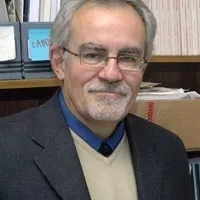
Christopher A. Sarlo
Professor of Economics, Nipissing UniversityChristopher A. Sarlo is professor of economics at Nipissing University in North Bay, Ontario, as well as a senior fellowwith the Fraser Institute. He is the author of Poverty in Canada (Fraser Institute, 1992, 1996), Measuring Poverty in Canada (Fraser Institute, 2001, 2006), and What is Poverty? Providing Clarity for Canada (Fraser Institute, 2008). Some of his recent publications include Understanding Wealth Inequality in Canada, Consumption Inequality in Canada: Is the Gap Growing?, Child Care in Canada: Examining the Status Quo in 2015, and Income Inequality Measurement Sensitivities. Professor Sarlo has published a number of articles and studies on poverty, inequality and economic issues relating to the family.… Read more Read Less… -

Fred McMahon
Resident Fellow, Dr. Michael A. Walker Chair in Economic FreedomFred McMahon is a Fraser Institute Resident Fellow and holder of the Dr. Michael A. Walker Chair in Economic Freedom.He has an M.A. in Economics from McGill University. Mr. McMahon manages the Economic Freedom of the World Project and coordinates the Economic Freedom Network, an international alliance of over 100 think tank partners in about 100 nations and territories. His research focuses on global issues such as development, trade, governance and economic structure. Mr. McMahon is the author of numerous research articles and several books including, Looking the Gift Horse in the Mouth: The Impact of Federal Transfers on Atlantic Canada, which won the Sir Antony Fisher International Memorial Award for advancing public policy debate, Road to Growth: How Lagging Economies Become Prosperous, and Retreat from Growth: Atlantic Canada and the Negative Sum Economy.He has written for numerous publications including the European Journal of Political Economy, the SAIS Journal (School of Advanced International Studies, Johns Hopkins University), the Wall Street Journal, Policy Options, National Post, Time (Canada), Globe and Mail, Ottawa Citizen, and most other major Canadian newspapers. Research articles he has recently authored or co-authored include: Economic Freedom of North America, Quebec Prosperity: Taking the Next Step, The Unseen Wall: The Fraser Institute's Annual Trade Survey, and Economic Freedom of the Arab World.… Read more Read Less… -
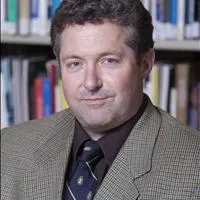
Filip Palda
AuthorFilip Palda was a full professor at the École nationale d'administration publique. He earned his Ph.D. in economics at the Universityof Chicago. He wrote two books for the Fraser Institute (Election Finance Regulation in Canada: A Critical Review, and Home on the Urban Range: An Idea Map for Reforming the City) as well as co-authored three Tax Facts books and pioneered for the Fraser Institute, along with Isabella Horry, the survey method of estimating tax incidence. He was also the editor of five Fraser Institute books (Essays in Canadian Surface Transportation, Its no Gamble: The Economic and Social Benefits of Stock Markets, L'État interventionniste : le gouvernement provincial et l'économie du Québec, Provincial Trade Wars: Why the Blockade Must End, and The New Federalist), and the author of over a hundred Fraser Forum articles as well as the author of the Public Policy Source paper The History of Tobacco Regulation: Forward to the Past. He has written a dozen articles in the National Post, has published with the World & I, as well as being cover author for the Next City magazine. In addition to his work for the Fraser Institute, professor Palda was the author of more than 20 articles in refereed economic journals and was a high-scoring author on the RepEc website of economic working papers. He is best known for his work on exposing the self-interest politicians hold in crafting election finance laws and for his discovery of the displacement deadweight loss of tax evasion.Filip Palda, professeur titulaire à lÉcole nationale dadministration publique, a obtenu son doctorat en économie à lUniversité de Chicago. Auteur de deux livres de lInstitut Fraser (Election Finance Regulation in Canada: A Critical Review et Home on the Urban Range: An Idea Map for Reforming the City) et coauteur de trois livres de la série Tax Facts, il a en outre conçu, avec Isabella Horry, sa méthode denquête par sondage pour lestimation de lincidence fiscale. Il est également responsable de cinq livres de lInstitut Fraser Essays in Canadian Surface Transportation, Its no Gamble: The Economic and Social Benefits of Stock Markets, LÉtat interventionniste : le gouvernement provincial et léconomie du Québec, Provincial Trade Wars: Why the Blockade Must End et The New Federalist et auteur de plus de 100 articles de la revue Fraser Forum, de même que de larticle de la série Public Policy Sources intitulé The History of Tobacco Regulation: Forward to the Past. Il a par ailleurs signé une douzaine darticles parus dans le National Post, publié un article dans The World & I, et fait la couverture de la revue The Next City, dans laquelle il a publié deux articles. Plus de 20 articles de M. Palda non liés à son travail pour lInstitut Fraser ont été publiés dans des revues économiques à comité de lecture, et il est très lu selon les statistiques recueillies par la base de données en ligne RePEc (Research Papers in Economics) darticles en économie. Il est surtout connu pour avoir exposé lintérêt des politiciens à élaborer des lois sur le financement électoral et découvert la perte de poids mort causée par lévasion fiscale.… Read more Read Less… -

Deani Van Pelt
Senior Fellow, Fraser InstituteDeani Van Pelt is a Senior Fellow and Former Director of the Barbara Mitchell Centre for Improvement in Education at theFraser Institute. Following her studies at McMaster University (B.Comm.) and the University of Toronto (B.Ed.) she taught mathematics and business subjects in both public and private secondary schools. She then completed her M.Ed. and Ph.D. in Education at The University of Western Ontario where she was awarded the Bishop Townshend Gold Medal Award for excellence in graduate studies. From 2006 to 2014 she served at Redeemer University College, first as Assistant Professor and then as Associate Professor of Education. During this time she led several international research collaborations funded by the Social Sciences and Humanities Research Council of Canada, taught a variety of courses including Systems of Education, and was Director of Teacher Education for four years. Her research and publications in Canadian education policy include studies in home schooling, independent schooling and education funding. She has presented numerous times over the last two decades in academic and practitioner conferences across North America. Recently a co-author of the Fraser Institute studies Education Spending in Canada: What’s Really Happening? and Financial Savings: Restructuring Education in Ontario Using the British Columbia Model, she continues to appear on TV and in radio talk shows across Canada. Her work has been featured in many Canadian newspapers including the National Post and Globe and Mail and she has served as an expert witness.… Read more Read Less… -
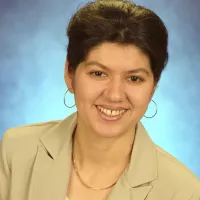
Amela Karabegovic
Amela Karabegovi is a former Senior Economist of the Fraser Institute. She holds a B.M. (Great Distinction) in General Managementfrom the University of Lethbridge in Alberta and an M.A. in Economics from Simon Fraser University in British Columbia. She was a coauthor of the Economic Freedom of North America , Economic Freedom of the Arab World , Myths and Realities of TILMA , Transparency of Labour Relations Boards in Canada and the United States , Measuring Labour Markets in Canada and the United States , Measuring the Flexibility of Labour Relations Laws in Canada and the United States , Tax and Expenditure Limitations: The Next Step in Fiscal Discipline , and the Prosperity Series-Ontario .… Read more Read Less… -

Mark Mullins
Mark Mullins is the former executive director of the Fraser Institute as well as the Institute's former director of Ontariopolicy studies. He has published numerous studies on government finance, tax policy, and value-for-money issues. Prior to joining the Fraser Institute in 2003, Dr. Mullins served as President of MSG Hedge Corporation, a privately owned consulting firm and as Senior Vice-President and Chief Economist at Midland Walwyn Capital Inc., where he was responsible for communicating the firm's outlook on the North American economy and financial markets. Dr. Mullins also brings extensive applied policy experience, having served as economic and fiscal policy advisor to the Canadian Alliance Party, the Progressive Conservative Party of Canada, and the Progressive Conservative Party of Ontario. Mark Mullins has an M.A. from the University of Western Ontario and a Ph.D. from the London School of Economics and has written extensively on subjects such as Canadian tax reform, health policies, and stock market and investment issues. He is a member of Ontario's Task Force on Competitiveness, Productivity and Economic Progress and a regular media commentator.… Read more Read Less… -

Sylvia LeRoy
Sylvia LeRoy was a former Policy Analyst in the Fiscal Studies Department at the Fraser Institute and Program Manager forthe Donner Canadian Foundation Awards for Excellence in the Delivery of Social Services. She has an Honours BA in Political Science from the University of Western Ontario and an MA in Political Science from the University of Calgary. She is co-author of Can Markets Save Canada's National Parks?, Donner Non-Profit Performance Report: An Analysis of Management, Staff, Volunteers, and Board Effectiveness in the Non-Profit Sector, Welfare Reform in Ontario: A Report Card, Tax and Expenditure Limitations: The Next Step in Fiscal Responsibility, and Judicial Accountability in Canada . She is a regular contributor to Fraser Forum and has published articles on social, legal, and environmental issues in such newspapers as The National Post, The Calgary Herald, The Vancouver Sun, The Vancouver Province, The Ottawa Citizen, and The Windsor Star. She has appeared as a commentator on various radio and television programs on CBC, Global, and CTV.… Read more Read Less… -

Claudia Hepburn
Executive Director, The Next 36Claudia Hepburn is the founder of the Children First: School Choice Trust, the only program in Canada to have wonthe Templeton Award for Social Entrepreneurship. Claudia was the founding Managing Director of The Fraser Institute, Ontario Office (2003-2008), and founded and directed the Institute's department of education policy research (1999-2008). She is the co-author of many education studies including Low Incomes, High Standards: Can private schools make a difference for low income families? (2008), Why Canadian Education Isn't Improving (2006), The Canadian Education Freedom Index (2003), the editor of Can the Market Save Our Schools (2001), and the author of The Case for School Choice: Models from the United States, New Zealand, Denmark and Sweden (1999). She founded and hosts the institute's popular cocktail series, Behind the Spin: Fraser @ The Fifth , and its new dinner series, DIALOGUES . As the director of education policy, she was a frequent media commentator on education issues for a decade and her articles appeared in newspapers across Canada. She has a BA in English from Amherst College in Massachusetts, and an MA and B.Ed from the University of Toronto. Ms Hepburn was named one of Canada's Ten Most Inspiring Women of 2006 and one of the 2008 Top 25 Canadian Women of the Year by the Women's Post.… Read more Read Less… -

Jayant Bhandari
Jayant Bhandari grew up in India and has travelled widely within the country as well as abroad. He has anMBA from Manchester Business School (UK) and Bachelor of Engineering (Computers) from SGSITS (India). He emigrated from India two years ago to seek liberty from the collectivist society there, and now lives in Vancouver. Currently he devotes his time between writing and developing his company Relishtrove Foods Inc. He has also started and developed Indian subsidiary operations of two European companies.… Read more Read Less… -

Peter Shawn Taylor
Peter Shawn Taylor is a contributing editor at National Post Business Magazine. He holds an MA in Economics from theUniversity of Alberta and was a member of the National Post editorial board from 1998 to 2002.… Read more Read Less…
Related Topics
Related Articles
By: Grady Munro and Jake Fuss
By: Alex Whalen and Jake Fuss
By: Jake Fuss and Grady Munro